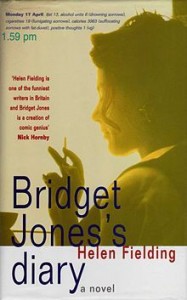 Title: The Crocodile Club (Goodreads)
Title: The Crocodile Club (Goodreads)
Author: Kaz Cooke
Published: Allen & Unwin, 1993
Pages: 240
Genres: Chick Lit
My Copy: Paperback
Buy: Amazon, Book Depository (or visit your local Indie bookstore)
The Crocodile Club tells the story of Selina Plankton, an assistant to the magician The Great Salami, who finds herself out of a job. At the same time she receives an eviction notice. Her life becomes a little strange when she meets a Serbo-Scottish psychiatrist who offers her $10,000 for a first date. However a desperate phone call sends her to Darwin to help a life long friend where Selina is embroiled in a mystery that involves political corruption, mayhem and attempted murder.
Kaz Cooke is an Australian author, cartoonist and radio broadcaster. She is an experienced journalist, with over 30 years’ experience and now the author of advice books like Women’s Stuff, Girl Stuff: your full-on guide to the teen years and Up the Duff: the real guide to pregnancy. I would like to point out when viewing her website there is only one mention of her novel The Crocodile Club and I had to use the find option in my browser to actually find it.
This is a really strange book; on the surface it is this story of a modern Australian woman struggling through life, trying to make the most of her job and find romance. There is that question of etiquette when it comes to being offered $10,000 for a date that plays a role within the novel. There are the normal chick-lit tropes, a quirky protagonist who is hopeless with love, a destructive ex-boyfriend and the light hearted humour.
However Kaz Cooke’s journalistic style comes out every so often with the story and creates these really weird moments. The first time it was about thirty pages into the story and I was learning about the socio-economical make up of Darwin. Later there were moments heavily focused on small-town politics, political corruption and the relationship between government and mining companies. It doesn’t stop there; I was sent on a tangent about foreign relationships and trade between Australia and Asia and even going on about the United States of America. It is almost like Cooke wanted to give the reader all this information to show them what she was trying to do with the story. Though it was meant to be a quirky romance/adventure story and I am sure most readers would have been able to manage without all this information. This was such a strange experience to jump from chick-lit to journalistic research and back again constantly.
I picked up this novel because it was my wife’s favourite book when she was a teenager and putting aside all those heavy moments I can see why. The romantic elements of The Crocodile Club fall into the spectrum of what a teenager would class as romantic, it is the type of novel a young person would try to write. As an adult, I thought it was clichéd, the characters’ actions were juvenile and dialogue was clunky but besides all of that, there were some funny moments. Finally, I could never understand Selina’s obsession with hairpins. That was until she turned into the MacGyver of hairpins.

 Title: Landline (
Title: Landline ( Title: The Suite Life (
Title: The Suite Life ( Title: Bridget Jones's Diary (
Title: Bridget Jones's Diary ( Title: Addition (
Title: Addition ( Title: Seating Arrangements (
Title: Seating Arrangements ( Title: No Sex in the City (
Title: No Sex in the City (